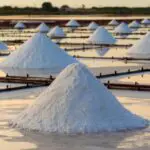Table of Contents
Hell hath no fury like a kitchen scorned.
You are hereby pronounced guilty of several culinary sins.
Perhaps you did not know what you were doing at the time, but by skipping the salt in your seasoning mix, or using a hazardous chopping board, you have sentenced yourself to flavour jail. You had better hope that your mistakes stop there, because if you continue, then you will be cursed with slow-boiling pasta water and potatoes that never quite reach fork-tender for eternity.
There are dozens of poor choices that you can make in the kitchen, and while some seem innocuous at first, they are just accidents waiting to happen or, sometimes, hidden ways to ruin your food before it even begins.
Sin #1 | Not Tasting Your Food As You Cook
You might be wondering “who doesn’t taste their food as they cook” — that without knowing where your recipe is heading, you are surely setting yourself up to fail. And you would be right.
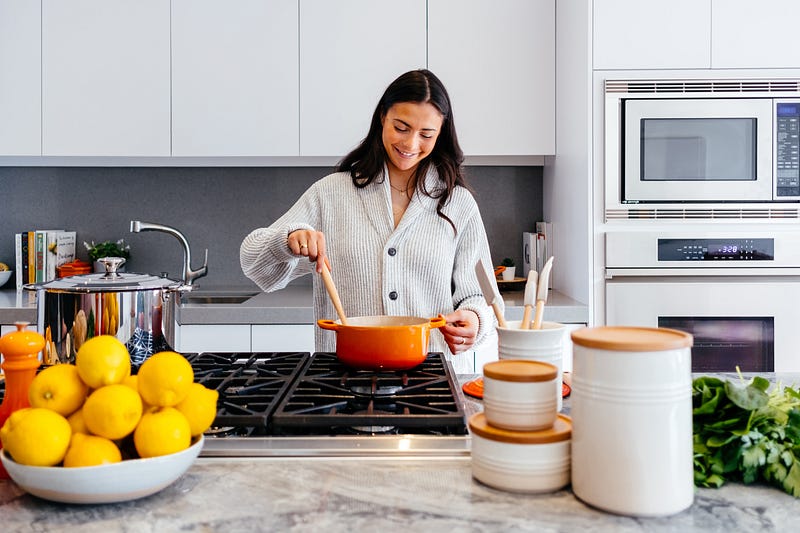
In fact, ask any culinary school graduate what the most commonly heard phrase was while they were in the kitchens and they will begrudgingly answer that it was “Taste, taste, taste!”.
But why is it so important?
When we cook, we don’t just rely on our experiences to keep us on track, we actually use the majority of our senses automatically. The first, and most obvious one, is sight; so much so, that golden brown isn’t just a colour anymore, it’s synonymous with perfectly cooked meats and pastries — and for good reason. We use this method to easily see, from a glance, whether food is ready or if it needs a few more minutes.
Of course, we also use sounds, such as the sizzling of a pan or the gentle simmer of a tomato sauce. You might be so adept at this that you can even distinguish between different states when it is hidden under the lid of a pan.
How many times have you heard that your simmering pan has started to turn into a boiling one from across the kitchen?
Touch is critical when we cook certain foods such as meats, the recent popularity of the five-finger steak test is evidence of that. And our smell is one of the best ways we navigate our recipes, with “until fragrant” littering most modern recipe cards just like “season to taste” does.
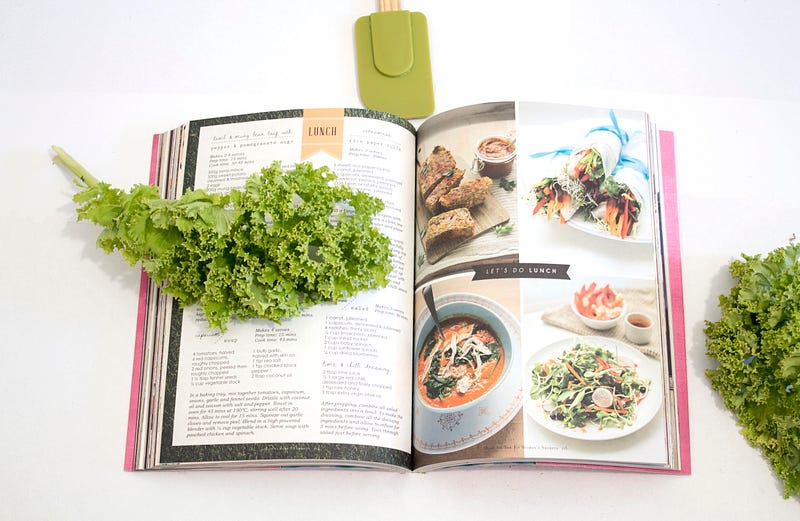
But our sense of taste is by far the critical one. It gives us a sneak peek into the future and an opportunity to change it, one small pinch at a time. If something doesn’t taste right whilst you are cooking it, then how can you expect it to change in the pot? You need to identify these critical times that can mean the difference between success, and horrifying failure.
If you won’t taste your food, how can you expect someone to eat it?
Poor Knife Literacy
Glass is not an acceptable material for a chopping board. It just isn’t.
The enemy of any meaningful cook is a dull knife; they are dangerous, inefficient and have a special spot reserved for them in utensil purgatory. If you find yourself using one, take care that not only are you tearing the food and damaging the cells, but you are also just a casual slip-up away from losing a finger and living in sin forever.
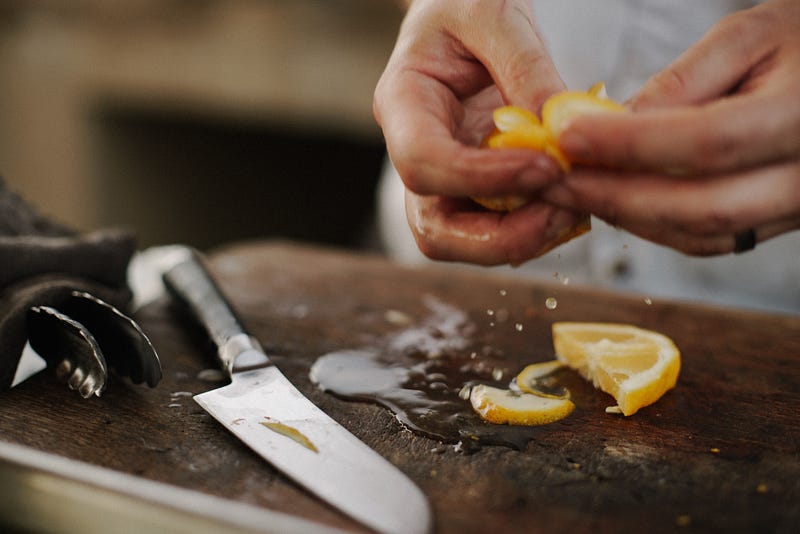
Proper knife literacy is essential in anyone’s kitchen, and by owning a knife dulling, slip-encouraging, shatter danger cutting board, you are asking for trouble. If you do own one, you must understand that it is most likely not intended for chopping use, and is instead to be used as a surface for hot pans and sheet trays.
Sin #2 | Going From Jar To Pan
The easiest way to ruin a dish quickly is to slip with the cayenne and turn one teaspoon into five tablespoons; and at that point, it is ruined.
No amount of added dairy is going to offset the magmatic dish you just created, and yet it could have been avoided.
Adding spices directly from the jar may make you feel like a culinary wizard, but there is a reason we created measuring spoons and cups. Spice jars have a nasty habit of clumping together, especially the ones you don’t use often, and not only is this a way to over-season, but it can also hamper its ability to dissolve properly. No one wants a clump of hot, moist cumin.
Sin #3 | Refusing To Wait for the Oven To Preheat
You put so much effort into reaching the end of a recipe, you’ve proofed your yeast and even kneaded the dough 3 times in a day — but you fall short at the final hurdle. You lack patience.
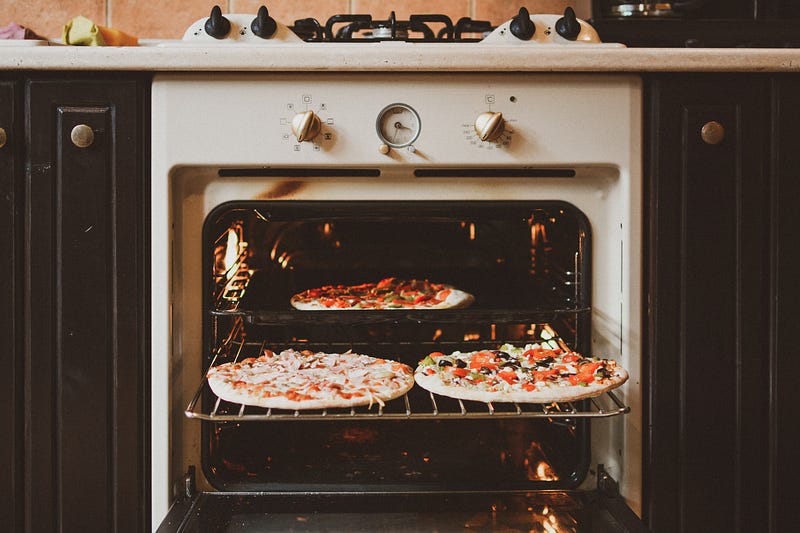
Whilst it might be okay to throw potatoes in a cold oven, it absolutely does not transfer to other foods. Potatoes are unique in that they simply need to reach a high temperature, and it usually takes a long time to do this regardless of the method. A cold oven to a potato is just a little headstart, but to pizza dough, it is a death sentence.
Bread relies on the instant burst of heat to complete the yeast rising process, it is one of the single most important steps to turn a lump of dough into a perfect vessel for sauces and fillings.
But it doesn’t just stop there, pastries need the same love and care to properly rise and fluff, otherwise, you will be left with sunken croissants and broken hearts.
You can arguably get away with starting large cuts of meat off cold, but since you’re probably searing it anyway, you have no excuse not to wait for the oven to heat properly.
Sin #4 | Being Afraid To Season Anything Properly
I grew up in a house with no spices and no salt; I owe my love of cooking to my attempts to wrestle free of this upbringing and in pursuit of the food I would love to eat, as well as cook.
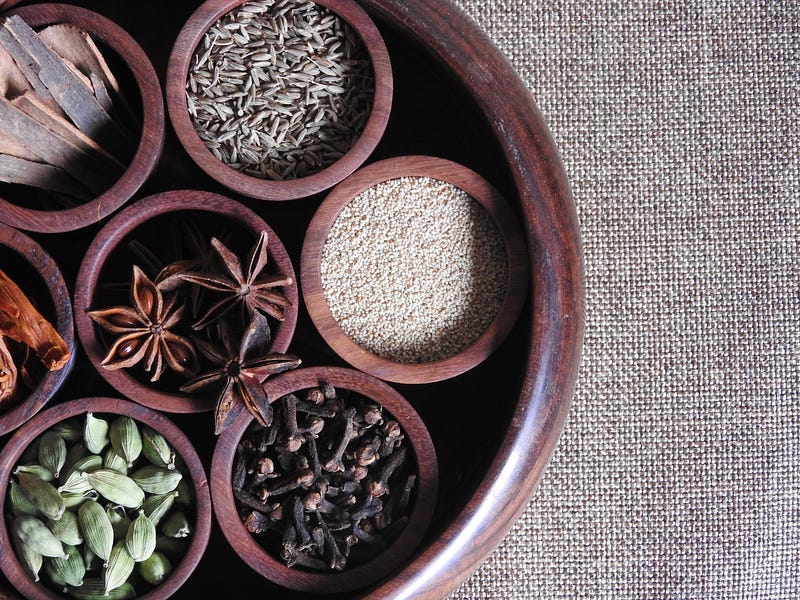
I tell you this because I want you to believe me when I tell you that if you don’t season your food, then you don’t deserve any food at all. There are dozens of spices and seasonings that are fundamental to almost everything we eat — salt, paprika, and pepper are probably the most common seasoning in the world. Even more so in commercially produced food, the spices found in these are often exotic and seldom used in an amateur kitchen, and yet I would bet that a person that avoids seasoning, also avoids cooking anything from scratch.
There is a world of flavour out there, denying it only hampers your eating experience and limits you in your culinary journey.
Redemption
Despite personally committing each sin at least once, I have found forgiveness in accepting my mistakes and continuing with new found confidence. Accept that you will have already, and will still in the future, commited these terrible sins, but by minimising them, you are becoming a better, well-rounded chef to your home.
But please, throw away that glass chopping board, we can hear your knife scream from miles away.
Did you enjoy this story? Do you want to learn more about life and cooking around the world? Then by all means have a look at my other posts on similar topics such as these below.
And if you find that you are enjoying the Medium platform and decide to sign up, using my referral link really helps me out and allows you to directly support the writers you enjoy with your subscription. Have a great day, and I’ll see you soon! https://medium.com/@KeeganM/membershipWhy Mise en Place Will Overhaul Your Slow Kitchen Life
Peeling carrots and slicing potatoes is just the beginning. You need to do more if you want to be effective.medium.comThe Transformative Power of MSG for the Home Cook
The misunderstood life of salt’s big brother.medium.com
By Keegan Manton on .
Exported from Medium on October 21, 2021.


